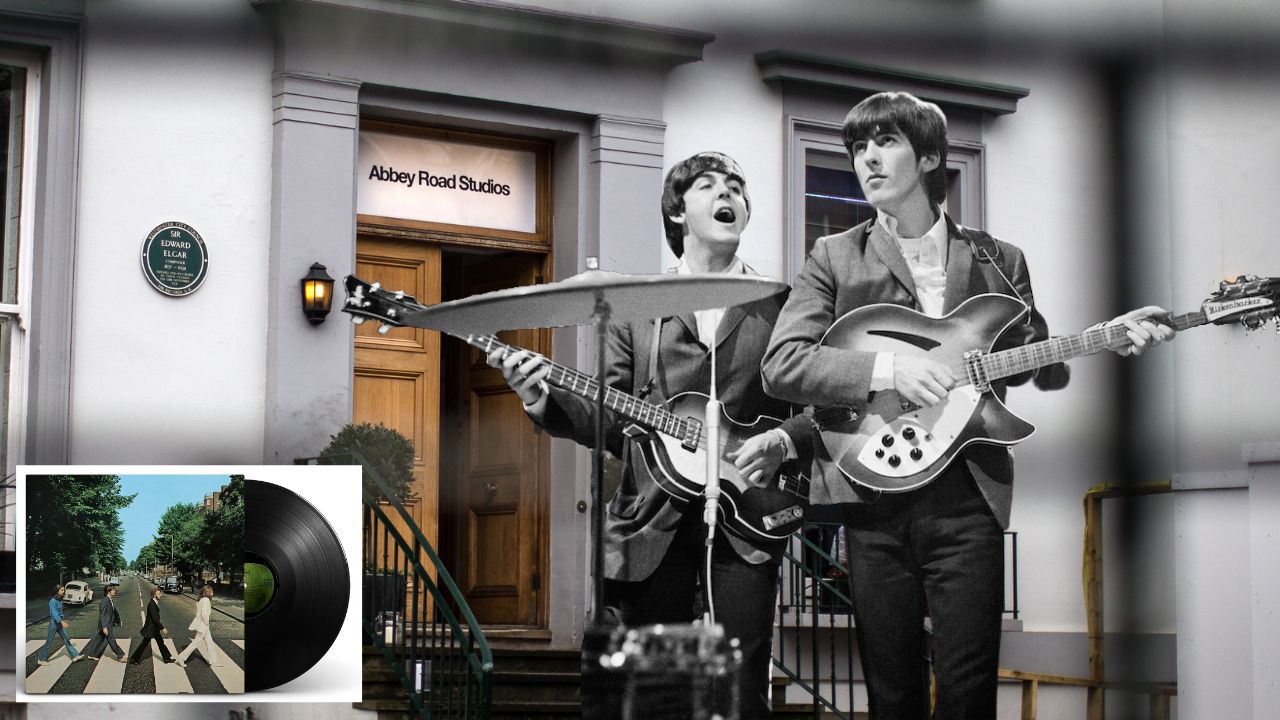“I don’t think George was too pleased with what I did with the bassline; I mean, I had to sell it to him!” Did Paul McCartney overplay on this Beatles’ Abbey Road hit?
Listen to the isolated bassline on one of the most covered songs in the Beatles catalogue

It’s hard to think of George, the ‘quiet Beatle’, ever being taken aback by one of Paul McCartney’s basslines. This is partly because Paul always approached the bass as a songwriter, and not as an instrumentalist. But when it came to record Something for 1969's Abbey Road, Beatles engineer Geoff Emerick reported that Paul was told to rein things in a bit.
"Paul started playing a bassline that was a little elaborate," Emerick said. "And George told him, 'No, I want it simple.’ There wasn't any disagreement about it, but I did think that such a thing would never have happened in years past. George telling Paul how to play the bass? Unthinkable! But Something was George's song, and everybody knew it was an instant classic."
“I’m a melodist,” Paul told BP back in October 05. “I like melodies, so I always try to get a bit of melody out of the bass part, but you have to be selective, or else the composer can get a bit annoyed. I don’t think George was too pleased with what I did on Something at first; I mean, I had to sell it to him!”
McCartney’s basslines have always had a melodic style that owed much to Motown’s James Jamerson. “Jamerson was certainly where I picked up a lot of my bass style," said Paul. "Because bass players normally have to follow: we follow the chords, follow the drummer, follow the vocalist, we have a following role. Suddenly the bass had power! We could dictate the direction of the music and add excitement. I heard the same thing with The Beach Boys.”
Though he used his ’65 Rickenbacker 4001S on Something, Paul attributes much of his style to the particular feel and sound of his ’63 Hofner 500/1 bass. “Because the Hofner is so light, it encouraged me to play with a light touch and be more adventurous. I’d play it more like a guitar. I’ll go up and just slur into high notes and then come back down and nail the bass part. The slides and slurs come from playing guitar and using some of that approach.”
The song’s structure is rather simple, but McCartney constantly repackages his bassline. Look out for the different ways he arpeggiates the D and D7 chords, and how he establishes the key change to A before the bridge by outlining an A triad. In the final verse he introduces yet more variations against the Cmaj7/G chord. He then pedals on A and walks up chromatically to F for the song’s final turnaround to C. While he plays most of the song on the upper strings, he mainly stays around the 5th and 7th positions for a fuller sound and less shifting.
After Yesterday, Something is the most covered song in the Beatles catalogue. In fact, the band was not the first to record the tune, which was first tracked by Joe Cocker for his 1969 self-titled debut. On that record, bassist Alan Spenner expertly matches Cocker’s gritty delivery and R&B inflection, giving the song a completely different feel from The Beatles’ version. Cocker’s rendition is also a minor third lower, in the key of A.
Get The Pick Newsletter
All the latest guitar news, interviews, lessons, reviews, deals and more, direct to your inbox!
Abbey Road is available to buy or stream.

Nick Wells was the Editor of Bass Guitar magazine from 2009 to 2011, before making strides into the world of Artist Relations with Sheldon Dingwall and Dingwall Guitars. He's also the producer of bass-centric documentaries, Walking the Changes and Beneath the Bassline, as well as Production Manager and Artist Liaison for ScottsBassLessons. In his free time, you'll find him jumping around his bedroom to Kool & The Gang while hammering the life out of his P-Bass.
“I asked him to get me four bass strings because I only had a $29 guitar from Sears”: Bootsy Collins is one of the all-time bass greats, but he started out on guitar. Here’s the sole reason why he switched
“I got that bass for $50 off this coke dealer. I don’t know what Jaco did to it, but he totally messed up the insides!” How Cro-Mags’ Harley Flanagan went from buying a Jaco Pastorius bass on the street to fronting one of hardcore’s most influential bands












